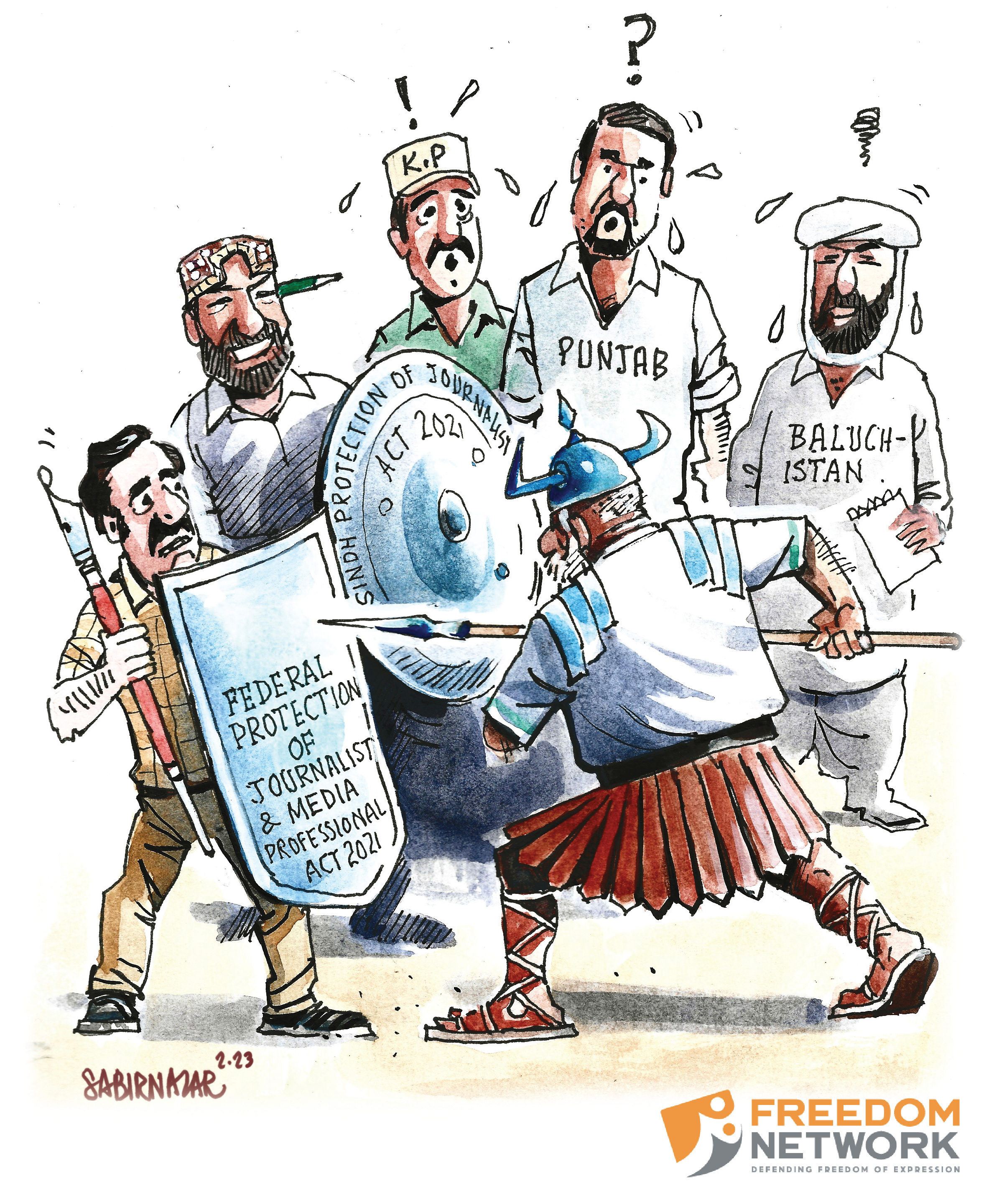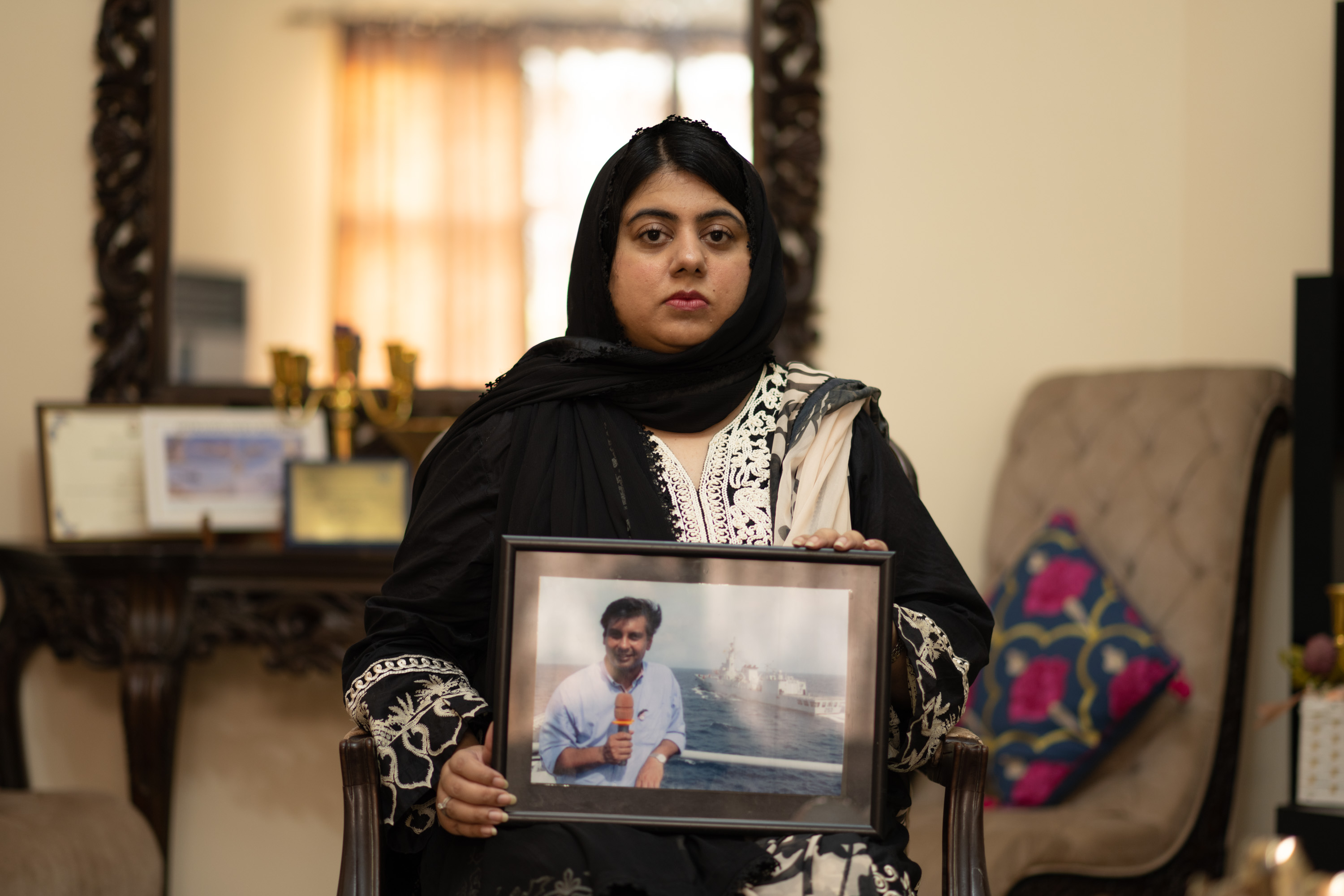Pakistan is one of few Muslim countries where the media has become powerful in recent years and exercises a fair degree of independence in freedom of expression. But divisions within the journalists’ community pose challenges to press freedom, while journalists also face serious security threats.
Reporters Without Borders (RSF) in its annual rankings for some years has been listing Pakistan as one of the most dangerous countries for journalists on the planet to practice journalism. Though most of the threats come from religious extremist groups like the Taliban and their affiliates, journalists have been complaining that they are coming under increasing pressure from some State institutions as well.
In the light of numerous attacks on Pakistani journalists in the recent years in which several journalists lost their lives – according to Freedom Network over 100 journalists and media workers have been killed since January 2000 – much has been written about the different types of threats journalists face and the various threat actors behind them.
However, less written about and analyzed have been the no less significant problems of the transfer of editorial control from professional editors to owners of the media outlets and deep divisions within the journalist practitioners’ community as key other reasons that have raised the risk bar for journalists.
In Pakistan the electronic and print media regularly expose corruption and highlight weaknesses of government. This side of the media is very much in line with higher ideals and standards of journalism. But when it comes to media market dominance, the main TV channels tend to defer to commercialism rather than exhibit strong editorial judgment based on journalistic ethics, because of the transfer of editorial control to media owners. On a recent talk show, one of Pakistan’s widely respected and leading current affairs anchors, Asma Shirazi, openly deplored interference by media owners.
Over 50 journalists have been killed in Pakistan in the past six years, according to Freedom Network, mostly working with the main TV news channels, and yet it is staggering that the community of 18,000 journalists in the country has been unable to show decisive unity in sending a strong message to their attackers, intimidators and harassers.
Whenever a journalist of a media organization comes under attack, other media organizations routinely avoid giving appropriate coverage of the attack, let alone fight for the collective right to freedom of expression. Najam Sethi, a senior Pakistani journalist and current affairs analyst, rightly says that the lack of a united front against security threats is one of the major hurdles facing journalists in Pakistan and makes it easier for vested groups to attack them.
During a recent visit to Pakistan, several young TV news journalists told me that, while covering some important unfolding events, they are simply told to stand in front of a camera on a live TV show and say anything in order to be the first in breaking news. I asked what happens if they don’t know enough about what happened. They told me “it doesn’t matter, as long as our employers are happy.” This kind of compromise makes it easier to manipulate and hurt the media by vested groups.
Another problem relating to editorial control is partiality. At least two of the big TV channels lean towards one of the main political parties. Geo TV, part of the Jang Media Group and controlling roughly half the media market, is perceived as favoring Pakistan Muslim League-N led by Nawaz Sharif. ARY Digital, another mainstream news TV channel, is openly supportive of Pakistan Tehrik-e-Insaf led by Imran Khan and fiercely anti-PML-N.
Another problem is the unthinking use of unverified commentary on social media by the mainstream media, fomenting conspiracy theories and sensationalism around the issues of militancy, extremism and terrorism. When Pakistan’s teenage champion of girls’ education, and now Nobel Peace Prize winner Malala Yousafzai, was shot by the Taliban in her native Swat Valley, the mainstream media almost unanimously supported her and her cause. But subsequently unverified rumours started circulating about her on social media. Some sections of the mainstream media picked up those stories and started debating them, damaging the cause of the universally admired hero from Pakistan.
As the debate over owners’ interference in the editorial domain continues, Mazhar Abbas, a leading journalists’ rights campaigner, says it is important that steps are taken before the situation turns uglier. In several recent appearances he has suggested that media owners should form a broader media sector alliance to unite the country’s increasingly fractious journalists’ community.
If the news outlets in Pakistan follow more independent editorial rules and effective mechanisms to implement them, it would make the country’s media truly professional, replacing the focus from a competition over sensationalism to one around editorial standards.
This is an exclusive blog for Freedom Network, Pakistan premier media rights watchdog.
About the author: Amanullah Ghilzai has 18 years of experience of reporting, analyzing and commenting on politics in Pakistan and Afghanistan. He has worked with the BBC in London, Voice of America in Washington and Radio Free Europe in Prague. As a senior journalist from the region, Ghilzai has contributed numerous articles to these and other media broadcasters and publications.
Editorial Compromises Hurting Pakistani Media
- November 1, 2014
- 11:47 am
- No Comments
More from the News section
September 18, 2023
No Comments
July 26, 2023
No Comments
June 20, 2023
2 Comments
March 21, 2023
No Comments
August 30, 2022
No Comments
Resize text-+=

